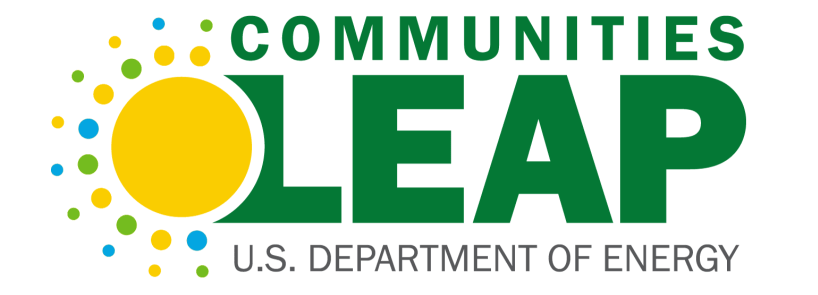Throughout 2023, Minnesota Clean Cities Coalition (MC3) provided technical assistance to one of the U.S. Department of Energy’s (DOE) Communities LEAP (Local Energy Action Program) pilot projects. MC3 assisted Hennepin County, City of Brooklyn Park, and their community partners to explore electric mobility solutions that lower air pollution and provide more affordable, accessible, and equitable transportation options in historically underserved areas.

Project background
During its pilot year of projects, the Communities LEAP program aimed to facilitate sustained economic and environmental benefits in 24 communities, primarily through DOE’s clean energy deployment work. This opportunity was specifically open to low-income, energy-burdened communities –referred to as energy justice communities – that are also experiencing direct environmental justice impacts and/or economic impacts due to a shift away from a historical reliance on fossil fuels.
Hennepin County’s Communities LEAP project focused on developing an equitable community engagement model to inform local decisions relating to electric mobility. To counter historical environmental inequities, Hennepin County partnered with Brooklyn Park to co-develop this project.
In addition to these two local governments, the project team consists of multiple community-based organizations, including, 1 Day at A Time (1DAAT), Community Partnership Collaborative 2.0 (CPC 2.0), Minnesota Institute for Nigerian Development (MIND), African Career Education and Resources (ACER), Powderhorn Park Neighborhood Association (PPNA), and the Whittier Alliance. Along with MC3, the National Renewable Energy Laboratory (NREL) and Great Plains Institute contributed technical assistance and topic expertise.
Project goals
The high environmental and financial costs of the existing transportation system negatively affect the health and well-being of all Americans, especially those in energy justice communities. Major federal investments that aim to advance affordable and equitable clean transportation have created an unprecedented opportunity to address these inequities.
In response to this opportunity, Hennepin County, Brooklyn Park, and other project partners want to ensure these investments benefit all residents according to their needs and priorities.
The project is in its final stages; project outcomes reports will be posted as they become available.


